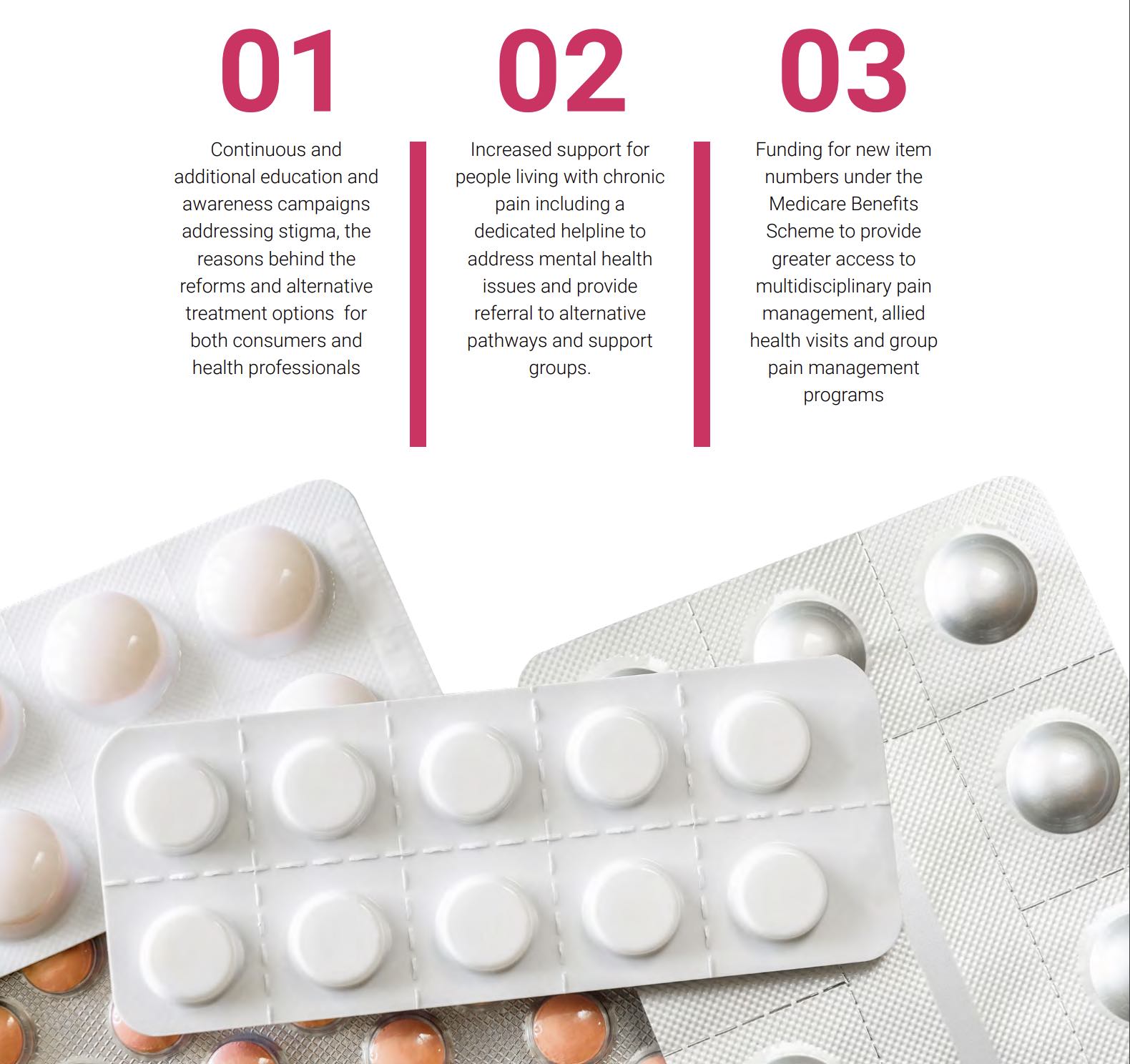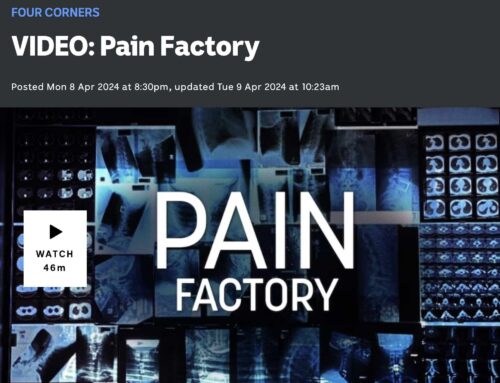When will patients be understood and listened to?!
It’s obviously necessary to have a peak body addressing the needs of the pain community. Still, the frustration of not being taken seriously only exacerbates our pain, not to mention the time it takes for the problems to be identified and addressed.
People are suffering in the interim, many paying with their lives.
I hope PainAustralia have its pedal to the floor. After speaking with the new CEO Giulia Jones, I am optimistic – she is not one to beat around the bush!
PainAustralia is Australia’s leading pain advocacy body working to improve the quality of life of people living with pain, their families and carers, and to minimise the social and economic burden of pain on individuals and the community.
The recently released PainAustralia Survey Report: Impact of opioid regulatory reforms on people living with chronic pain presents the responses from the survey, which was promoted via social media and conducted over eight weeks from late December 2021 until the first week of February 2022.
A total of 1808 responses and an additional 1920 social media engagements including posts, reactions, shares, re-tweets and comments were received.
These responses now set out the work the organisation needs to do for the pain community.
The three recommendations they define as most urgent are:
- Continuous and additional education and awareness campaigns addressing stigma, the reasons behind the reforms and alternative treatment options for both consumers and health professionals
- Increased support for people living with chronic pain including a dedicated helpline to address mental health issues and provide referral to alternative pathways and support groups.
- Funding for new item numbers under the Medicare Benefits Scheme to provide greater access to multidisciplinary pain management, allied health visits and group pain management programs
Excerpt from the survey report:
A PainAustralia survey conducted shortly after the introduction of the opioid reforms and several months into the pandemic in August 2020 showed consumers were finding it difficult to access their usual medications or alternative treatments, were being isolated and were facing additional barriers to accessing treatments.
Painaustralia supports the need to address harm from opioid use and acknowledges the need for regulation and oversight.
However these changes coincided with the pandemic and the national roll-out of Real Time Prescription Monitoring (RTPM) programs.
All of these factors combined have contributed to limiting consumer access to medications in the absence of readily accessible and affordable alternative treatment options.
While there is a need to be conscious of the harm that can result from opioid use, consumers should not be inappropriately denied access to the necessary pain management options they need.











You are so right Michelle! We have a serious problem with alcohol. I always wonder about this when celebrities reference drunkenness and have a laugh as though it’s some positive cultural characteristic. Again, it takes someone with lived experience to point it out and then ages later; it MAY be addressed. In the meantime, people suffer from the stigma and inability to access the treatment they need. A breakdown is certainly needed. Get onto PainAustralia!
Thank you for submitting your valuable thoughts.
Thanks for sharing this. Frustrating that people with chronic pain are subjected to the war on opioids attitude, while alcohol abuse accepted. “Approximately 5,500 deaths and 157,000 hospital admissions are attributed to alcohol consumption in Australia each year, and alcohol-related harm costs the economy more than $14 billion per annum.”
More than the road toll or the umbrella of opioid deaths.
Why are the opioids all lumped together with street drugs like heroin vs pharmaceutical medications? Surely a better breakdown is warranted if we can help pain sufferers get more active and productive?